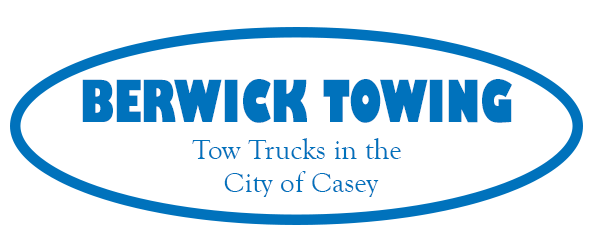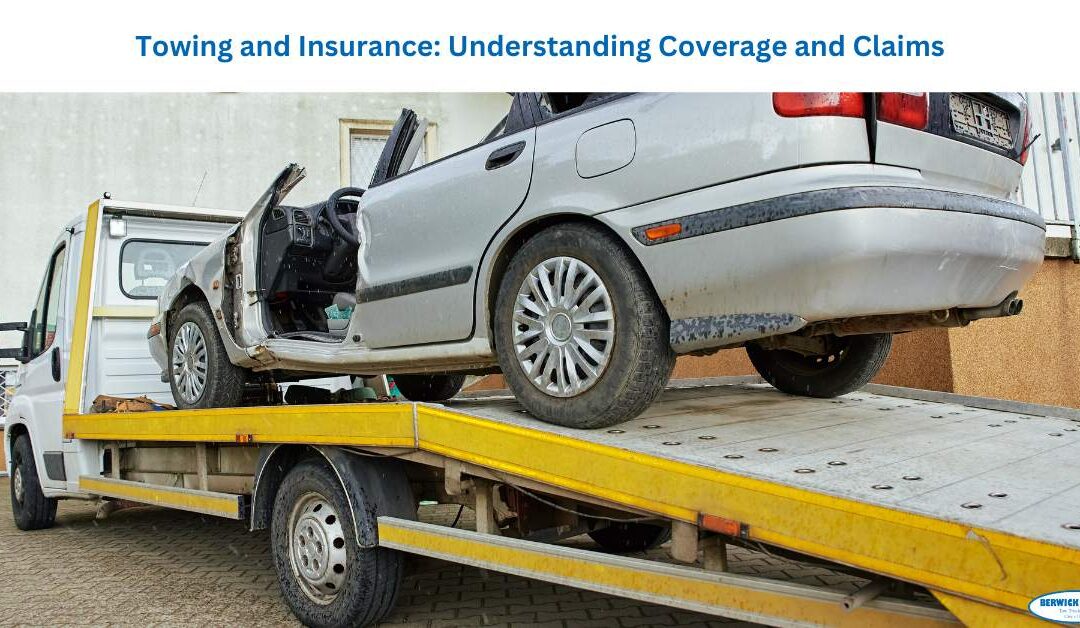When dealing with an unexpected vehicle breakdown or accident, understanding your insurance coverage related to towing can save you time, money, and unnecessary stress. Towing services often come with costs that many drivers don’t anticipate, but the right insurance coverage can ease these financial burdens. This guide will explain how towing coverage works, what to consider when filing a claim, and how to make sure you’re protected.
1. What Is Towing Insurance Coverage?
Towing insurance coverage, often known as roadside assistance or towing and labor coverage, is an add-on service offered by many auto insurance providers. This coverage typically helps pay for towing expenses when your vehicle is disabled due to breakdowns, mechanical issues, or in some cases, accidents.
Key Features of Towing Insurance
Covers Towing Costs: Covers towing expenses up to a specified distance or dollar amount.
Additional Services: Includes other forms of roadside assistance, such as fuel delivery, battery jump-starts, tire changes, and lockout services.
Affordable Add-On: Generally, roadside assistance or towing coverage is relatively low-cost when added to a standard insurance policy.
2. Types of Towing Coverage
There are multiple ways you may receive towing coverage, either directly through an auto insurance policy or through other memberships and services:
Auto Insurance Roadside Assistance: Many insurers offer towing coverage as part of their optional roadside assistance package. This coverage is designed to cover a limited number of tows per year and may specify a maximum towing distance.
Auto Club Memberships: Memberships with organizations like AAA or local automobile clubs often include towing and roadside services as part of their packages. These services might include more extensive coverage, like multiple tows per year or towing across greater distances.
Credit Card Benefits: Some credit cards offer towing and roadside assistance as a perk. Although not as comprehensive, this benefit can help cover limited towing expenses if you’re caught in a pinch.
3. How to Determine if You’re Covered
Before you need towing, it’s wise to verify your existing coverage to avoid unexpected costs. Here’s what to check:
Insurance Policy Details: Review your auto insurance policy’s declarations page to confirm if towing and labor coverage is included. Look at the maximum towing distance or dollar limit, as well as any restrictions.
Membership Limitations: If you have a roadside assistance membership, check how many free tows you have per year, the maximum towing distance, and any potential out-of-pocket costs.
Credit Card Limits: Contact your credit card company to understand their roadside assistance terms and limits, if available.
4. What to Do in the Event of a Breakdown
If you find yourself needing a tow, it’s important to understand the process of filing a claim for towing expenses:
Steps to Follow
Call Your Insurance or Roadside Provider: First, contact your insurance provider or roadside assistance provider to arrange towing services through their network. Some companies require that you use their approved towing providers.
Document the Incident: If you’re arranging towing independently, keep all documentation, including receipts, and make note of the date, time, and reason for the tow. This information will be essential for reimbursement.
File a Claim: If you paid out-of-pocket for the towing, you’ll need to submit a claim with your insurance provider for reimbursement. Typically, the process involves submitting receipts and any other supporting documentation.
Common Claim Restrictions
Distance Limits: Some policies cover towing only within a certain distance, so if your vehicle needs to be towed further, you may be responsible for additional mileage costs.
Incident-Specific Coverage: Some insurers may only cover towing after an accident, not for mechanical breakdowns, so review your policy details carefully.
5. Does Towing Affect Insurance Rates?
While using towing or roadside assistance services usually won’t impact your premium, frequent claims could signal higher risk to an insurance provider, potentially leading to higher rates. To avoid this, only use roadside assistance when necessary, and avoid making claims for minor towing expenses that you can pay for independently.
6. Handling Towing after an Accident
If your vehicle needs towing after an accident, additional factors come into play with insurance claims:
Collision Coverage: If the accident is covered by your insurance (collision or comprehensive coverage), the cost of towing may be included as part of the overall claim.
Non-Covered Accidents: If the accident isn’t covered, such as in cases of specific exclusions or lack of collision coverage, towing costs will likely fall to you unless you have separate towing coverage.
Third-Party Claims: If another driver is at fault, their insurance should cover the cost of towing as part of the claim process.
7. Choosing the Right Towing Coverage for You
When deciding on towing coverage, consider your driving habits, vehicle condition, and budget. Here are some points to think about:
Vehicle Condition and Age: Older vehicles may be more prone to breakdowns, so towing coverage can be a smart investment. For newer cars, roadside assistance from the manufacturer may already cover towing needs.
Distance Traveled: If you frequently drive long distances or commute through rural areas, higher towing limits or a comprehensive auto club membership may be worth it.
Budget Considerations: If you’re on a tight budget, you might want to weigh the cost of annual roadside assistance versus paying for an occasional tow.
Final Thoughts
Towing insurance coverage is a helpful, cost-effective tool for many drivers, providing financial protection and peace of mind during vehicle breakdowns and accidents. By understanding your policy and knowing what to expect when filing a claim, you can avoid out-of-pocket expenses and ensure you get the assistance you need. Whether through auto insurance, a membership club, or another service, the right towing coverage can make all the difference when you find yourself stranded on the road.
If you are in Lysterfield South, Victoria 3156, Australia, and looking for a car removal service, this is the best way to visit us.
Contact Us
Berwick Towing & Transport
27B William Rd
Berwick VIC 3806
(03) 7035 7815
www..berwick-towing.com.au/

